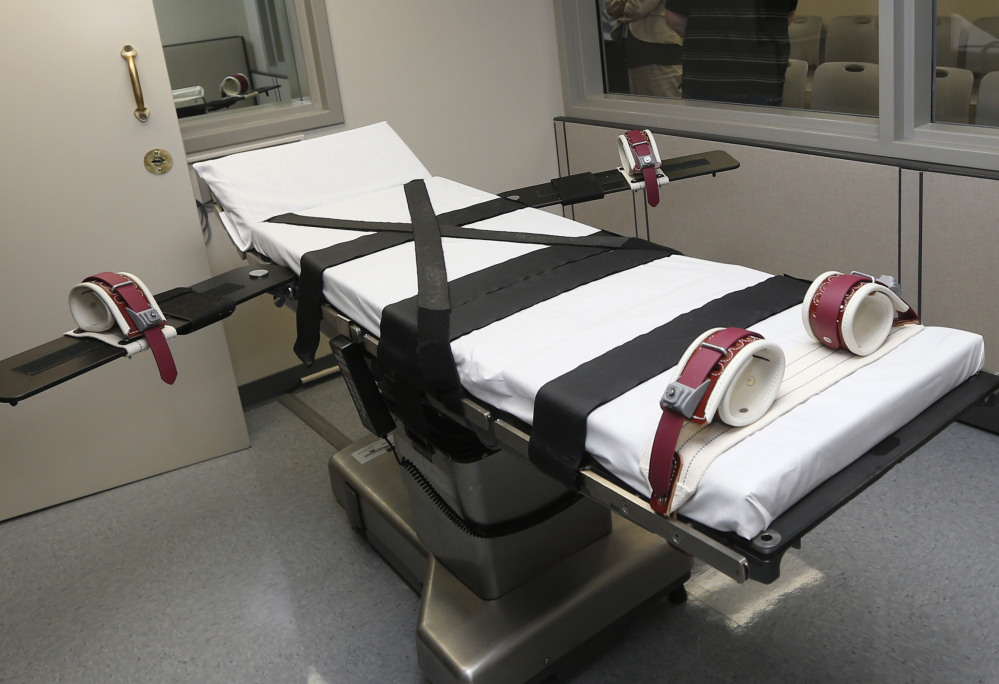WASHINGTON — Supreme Court justices engaged in an impassioned debate Wednesday about capital punishment, trading unusually combative words in a case involving a drug used in several botched executions.
The justices are considering the plea of death row inmates in Oklahoma to outlaw the sedative midazolam. The inmates say it is ineffective in preventing searing pain from other drugs used in lethal injections.
But Wednesday’s session, lasting just over an hour, featured broader complaints from conservative justices that death penalty opponents are waging what Justice Samuel Alito called a “guerrilla war” against executions by working to limit the supply of more effective drugs.
On the other side, among the court’s liberals, Justice Elena Kagan contended that the way states carry out most executions amounts to having prisoners “burned alive from the inside.”
The debate came on the court’s last argument day until fall, and a year to the day after a problematic execution in Oklahoma gave rise to a lawsuit from death row inmates over the use of midazolam.
The outcome of the case could turn on a rather narrow question involving the discretion of the federal trial judge who initially heard the lawsuit.
He ruled against the inmates, and a unanimous three-judge panel of the federal appeals court in Denver affirmed that ruling.
But justices on both sides gave voice to larger concerns.
“There are other ways to kill people, regrettably, that are painless,” Justice Sonia Sotomayor said.
Justice Stephen Breyer said it’s not the inmates’ fault if the state can’t find drugs that work painlessly.
He said, “Perhaps there is that larger question, that … if there is no method of executing a person that does not cause unacceptable pain, that, in addition to other things, might show that the death penalty is not consistent with the Eighth Amendment,” which forbids cruel and unusual punishment.
But the conservative justices said the court already has upheld the use of capital punishment and there must be ways of carrying out executions.
“And yet you put us in a position with your argument that he can’t be executed,” Chief Justice John Roberts told Robin Konrad, who represents the inmates.
Justice Antonin Scalia said drugs that have not been challenged as ineffective or likely to cause pain have been “rendered unavailable by the abolitionist movement.”
The Supreme Court’s involvement in the case began in January with an unusually public disagreement among the justices over executions.
Then, the court refused to block Oklahoma inmate Charles Warner’s execution over the objection of the four liberal justices.
In a strongly worded dissent for the four, Sotomayor said, “The questions before us are especially important now, given states’ increasing reliance on new and scientifically untested methods of execution.”
Send questions/comments to the editors.



Success. Please wait for the page to reload. If the page does not reload within 5 seconds, please refresh the page.
Enter your email and password to access comments.
Hi, to comment on stories you must . This profile is in addition to your subscription and website login.
Already have a commenting profile? .
Invalid username/password.
Please check your email to confirm and complete your registration.
Only subscribers are eligible to post comments. Please subscribe or login first for digital access. Here’s why.
Use the form below to reset your password. When you've submitted your account email, we will send an email with a reset code.